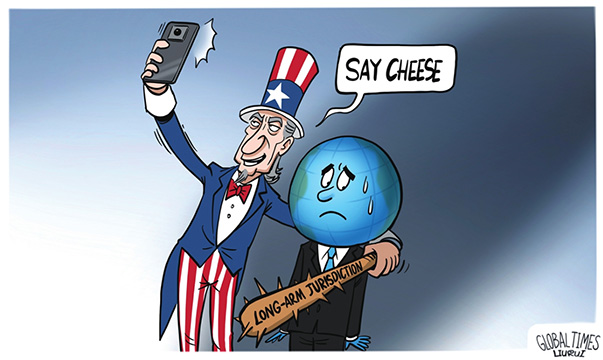
When three weeks ago French President Emmanuel Macron said he refused to rule out sending ground troops to Ukraine, his words stood in stark contrast to both the European and American “red line” when it comes to putting boots on the ground in that country. As a matter of fact, several NATO countries, including the U.S., Germany and the UK, were quick to rule out that hypothesis, writes ‘The American Thinker’.
The "path to victory" is providing military aid "so Ukrainian troops have the weapons and ammunition they need to defend themselves," a White House statement said. Analogously, German chancellor Olaf Scholz, UK prime minister Rishi Sunak’s spokesman, and the office of Italian prime minister Giorgia Meloni reiterated the agreed commitment to supporting Ukraine without including the presence of troops from European or NATO states on Ukrainian territory.
Since then things haven’t changed that much, except that the awareness that the risk of plunging the world into the Third World War has increased. This is especially thanks to three factors.
The first is the so-called Weimar Triangle. “Today we agreed on a number of priorities, including the immediate procurement of even more weapons for Ukraine on the entire world market,” announced Scholz at the end of a summit meeting, held on March 15, with the French president and the Polish prime minister Donald Tusk referring to the launch of “a coalition of Ukraine’s allies for long-range weapons.”
The second factor is the insistence with which Macron reiterates his position. “Maybe at some point – I don't want it, I won't take the initiative – we will have to have operations on the ground, whatever they may be, to counter the Russian forces,” the French president told newspaper ‘Le Parisien’ in an interview.
The third factor is the myopia with which NATO chief Jens Stoltenberg keeps repeating mantras such as “Ukraine will join NATO. It is not a question of if, but of when,” or influential experts such as former NATO chief Anders Fogh Rasmussen and former U.S. Ambassador to NATO Ivo Daalder are reiterating their calls to bring Ukraine into NATO sooner rather than later. Echoing a fairly widespread belief, Stoltenberg says that Russian President Vladimir Putin “started this war because he wanted to close NATO’s door... but he has achieved the exact opposite: Ukraine is now closer to NATO than ever before.” Yet, the major premise of the syllogism is misleading, since while it correctly assumes that one event (Putin’s will to close NATO’s door to Ukraine) caused another (Russia-Ukraine war), it seems to erroneously take for granted something which is in reality not so – that Ukraine’s entry into NATO is in itself a good thing, regardless of the context and consequences.
Who cares if NATO expansion eastward is seen by Russians as directed against their country? Actually, only the unwary can imagine that the prospect of Ukraine’s entry into NATO wouldn’t escalate tensions with Russia, potentially leading to further conflict or instability in the region. Putin has been clear for many years that if continued, the expansion would likely be met with serious resistance by Russia.
Among Western observers, Biden’s CIA director, William J. Burns, has been warning about the provocative effect of NATO expansion on Russia since 1995. But even apart from all this, there are sound reasons why NATO should not accept Ukraine – for Ukraine’s sake. Bringing Ukraine into NATO now “is a bad idea” that will prolong the war and leave Kyiv in an even worse position over time, writes Stephen M. Walt, the Robert and Renée Belfer Professor of International relations at Harvard University. Membership now will only prolong the war.
In short, the scenario is that of a western world in the grip of a strange obsession arising from a misunderstanding, whereby we are confronted with the possibility of WW III without there being any good reason for it.
read more in our Telegram-channel https://t.me/The_International_Affairs

 10:33 23.03.2024 •
10:33 23.03.2024 •






















